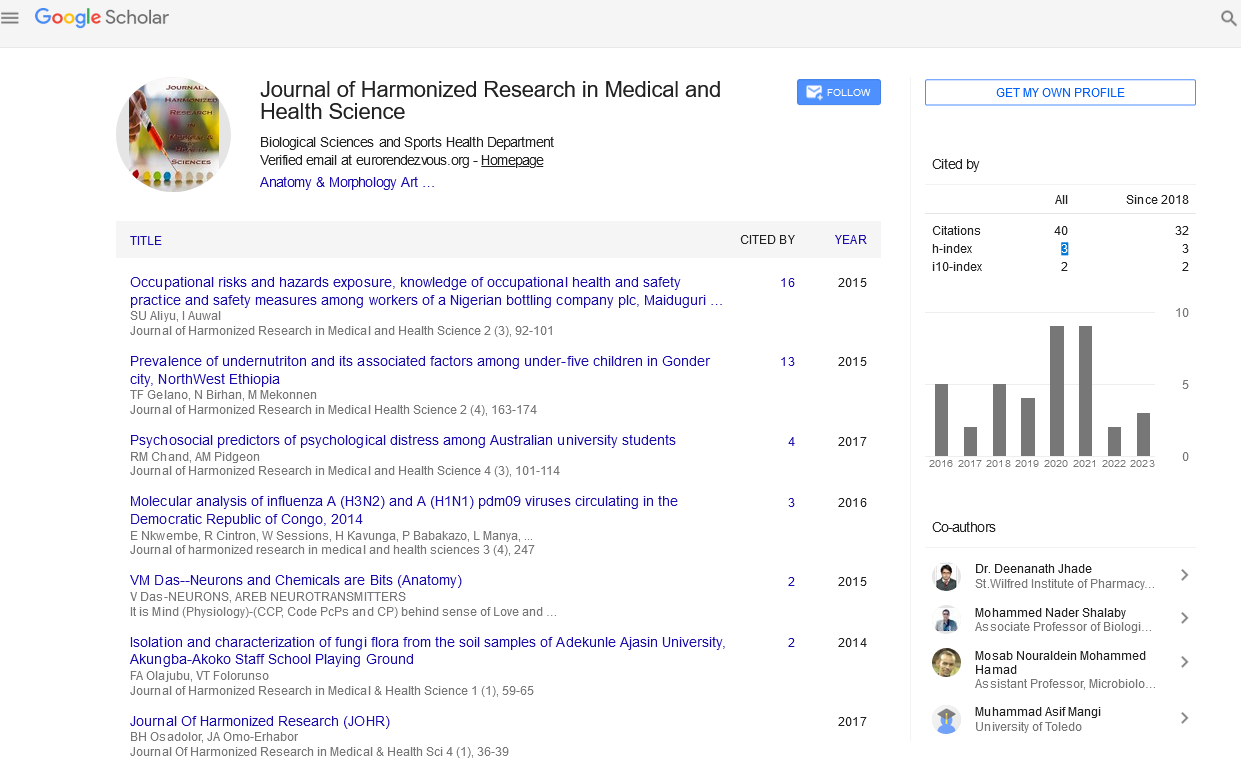COMPARATIVE EVALUATION OF THE SLEEP QUALITY IN MALE VERSES FEMALE STUDENTS OF NURSING AT SCHOOL OF NURSING AND MIDWIFERY OF MBU
Abstract
Author(s): Morteza Alibakhshi-kenari
Aims: Traditionally science students exhibit poor sleep quality and impaired academic and professional performances due to high sleep deprivation and high incidences of daytime dysfunctions. The prese nt study was aimed to evaluate the sleep quality in nursing students from the School of nursing and midwifery, university of Martyr Beheshti University (MBU) in Tehran. Study design: Sleep quality was evaluated by filling out the Pittsburgh Sleep Quality Index (PSQI). Place and Duration of Study: School of nursing and midwifery of Martyr Beheshti University (MBU) in Tehran, during 1 November, 2012 to 1 May, 2014. Methodology: 133 nursing students were divided into different groups (on the basis of age; group to 4); each group was further divided into two groups based on sex. Mean values of the score obtained for each PSQI category were analyzed by the Student t-test and 95% of Confidence of Intervals, to investigate the statistical differences among the male verses female groups and the correlation between the group and its respective score. Results: Findings showed that nursing students presented a fairly poor subjective sleep quality. Mean scores of sleep quality (PSQI category 1), sleep latency (PSQI category 2), sleep duration (PSQI category 3) and sleep efficiency (PSQI category 4) of female students were found significantly high in comparison to male students, while mean score of sleep disturbances (PSQI category 5), use of hypnotics/anti33 depressants (PSQI category 6) and daytime dysfunction (PSQI category 7) were non-significantly different among female and male students. Conclusion: The poor sleep quality in nursing students suggests that authorities should have specific guidance on sleep hygiene and should provide support for students presenting disturbances in day-time activities. Keywords: Disorders of excessive somnolence, Education, nursing students sleep, Sleep disorders, Pittsburgh Sleep Quality Index (PSQI).










